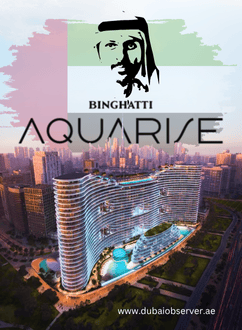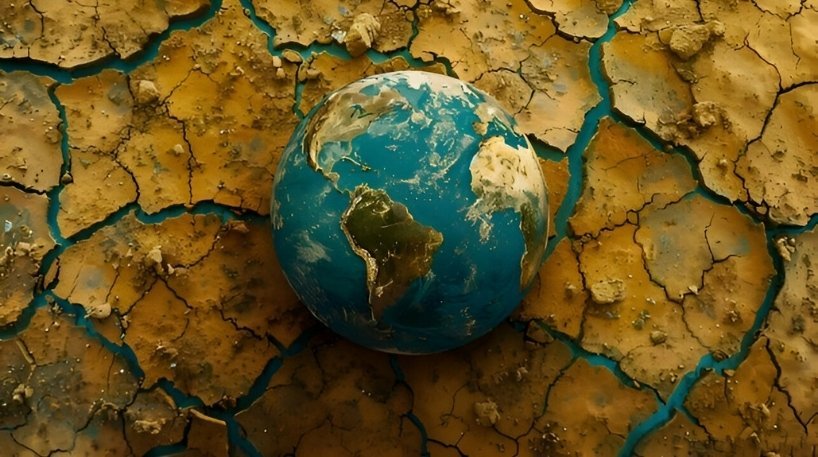For Dubai, a hyper-arid region reliant on desalination and finite groundwater, protecting these precious resources isn’t just environmentalism – it’s fundamental to economic stability, public health, and business continuity.
Some contamination is due to natural causes like saltwater intrusion into coastal aquifers – a significant threat to Dubai’s groundwater reserves. Other times contamination comes from artificial sources such as industrial runoff seeping into water tables or improper waste disposal. These challenges directly impact Dubai desalination contamination risks, operational costs, reputational exposure, and regulatory compliance.
Contamination of Water
Water contamination is a serious issue that can be caused by many different sources. Contamination can occur in both urban and rural areas. In Dubai’s densely populated urban landscape, major causes include discharge from aging or overloaded sewage infrastructure, potential leaks from extensive fuel distribution networks, runoff from urban landscaping/agriculture (like green spaces and golf courses requiring heavy fertilization), and industrial effluent. Contamination poses direct risks to public health, increasing healthcare burdens, and can disrupt tourism and food & beverage industries – vital pillars of Dubai’s economy.
While Dubai primarily uses centralized desalinated water, historical reliance on and ongoing use of groundwater in surrounding emirates and for certain purposes faces risks. Wells can be contaminated by inadequate construction, leakage from landfills, or pollutants from nearby industrial or agricultural activities. The financial burden of remediation and securing alternative water supplies falls heavily on businesses and government entities.
Industrial Waste
Industrial wastewater can contain toxic chemicals, heavy metals, and other materials known to cause serious health problems. For Dubai’s diverse industrial zones (like Jebel Ali), sectors such as manufacturing, chemicals, textiles, and metal fabrication must rigorously manage effluent. Inadequate treatment or accidental spills can contaminate soil and groundwater, posing long-term liabilities, costly remediation orders from the Dubai Municipality, stricter enforcement of DEWA water regulations, reputational damage, and potential disruption to operations. Proactive investment in zero-liquid discharge (ZLD) technologies presents both a compliance necessity and a sustainability leadership opportunity.
Oil Spills
Oil spills remain a major cause of water contamination. Given Dubai’s role as a global logistics and energy hub (ports like Jebel Ali, proximity to major shipping lanes, and bunkering activities), the risk of maritime spills is a constant concern. A significant spill could devastate coastal tourism (beaches, hotels, water sports), cripple port operations, damage marine ecosystems vital for fisheries and desalination plant intakes, and incur massive cleanup costs impacting the wider economy. Businesses must factor supply chain resilience and potential coastal asset vulnerability into their risk management strategies.
Human and Animal Waste
Human and animal waste can contain pathogens causing waterborne diseases Dubai businesses must mitigate. Dubai’s rapid population growth, massive tourism influx (exceeding pre-pandemic levels), and intensive urban development place immense pressure on sewage treatment capacity (Warsan, Jebel Ali). Overloads, infrastructure failures, or illegal discharges can contaminate stormwater systems or coastal waters. This directly threatens public health, increases absenteeism, damages the tourism brand, and burdens the healthcare sector. Businesses, especially in hospitality, events, and F&B, have a vested interest in supporting robust waste management infrastructure and practices.
Sewage Treatment Plant Discharge
Water contamination from sewage treatment plants is a global problem. While Dubai has invested heavily in advanced plants like Warsan, the sheer volume of wastewater and the challenge of managing peak loads (festivals, events) remain. Inadequate treatment or accidental discharges can pollute coastal waters used for recreation and cooling desalination plants, impacting tourism, marine life, and critical water production infrastructure. Regular, world-class maintenance and continuous capacity upgrades are non-negotiable investments for the city’s health and economic viability. Businesses benefit from advocating for and supporting these essential utilities.
Mining Operations
Mining operations can contaminate water. While large-scale hard-rock mining isn’t predominant in Dubai itself, the extensive quarrying and construction activities (essential for Dubai’s development) generate significant dust and sediment runoff. This can contaminate surface water and groundwater reserves. Furthermore, the UAE’s broader mining activities (e.g., in neighboring emirates) impact shared water resources. Dust and chemical runoff can affect desalination intake water quality and increase treatment costs for utilities like DEWA, potentially leading to higher tariffs for businesses. Responsible sediment control and water management in construction and extractive industries are crucial.
The Most Important Thing Dubai’s Business Community Can Do
The most important thing Dubai’s business community can do is be acutely aware of the threats facing its critical water resources. Understanding these risks enables informed decisions about operational resilience, supply chain security, sustainability investments, and corporate responsibility. Proactive measures in water stewardship – from efficient use and pollution prevention to supporting advanced infrastructure – are not just environmental necessities; they are investments in Dubai’s long-term economic health, public well-being, and global competitiveness. By addressing water quality challenges, Dubai businesses can mitigate risks, unlock efficiency gains, enhance their brand value, and contribute to the emirate’s sustainable future.
Frequently Asked Questions
What are the primary causes of water contamination affecting Dubai businesses?
Industrial wastewater discharge (e.g., chemicals/heavy metals from manufacturing zones like Jebel Ali), sewage system overloads from rapid urbanization/tourism, oil spills near ports/shipping lanes, and groundwater salinization due to over-extraction or coastal intrusion pose the highest risks. These threaten operational continuity, regulatory compliance, and public health.
How does water contamination impact Dubai’s economy?
Contamination increases operational costs (e.g., desalination expenses ≈11.8 billion AED/year), disrupts sectors like tourism (beach closures) and logistics (port downtime), and incurs fines for non-compliance. It also strains healthcare systems and reduces workforce productivity due to waterborne illnesses.
Are Dubai’s water infrastructure and storage tanks safe under DEWA water regulations?
While DEWA-supplied desalinated water meets WHO standards at source, aging internal plumbing and poorly maintained on-site storage tanks can introduce contaminants. Regular tank cleaning and filtration are critical for compliance.
What mitigation strategies can Dubai businesses adopt?
- Implement zero-liquid discharge (ZLD) systems for industrial wastewater.
- Use treated greywater for landscaping/cooling to reduce freshwater demand.
- Install real-time water quality monitors aligned with DEWA’s smart meters.
- Adhere to Dubai’s groundwater protection laws (e.g., Law No. 15 of 2008) to avoid fines up to AED 500,000.
What future trends will shape water contamination management in Dubai?
The UAE Water Security Strategy 2036 mandates a 21% reduction in water demand, 95% reuse of treated wastewater, and 100% renewable-energy desalination by 2030. Businesses should anticipate stricter regulations, invest in circular water systems, and leverage AI-driven leakage detection.














